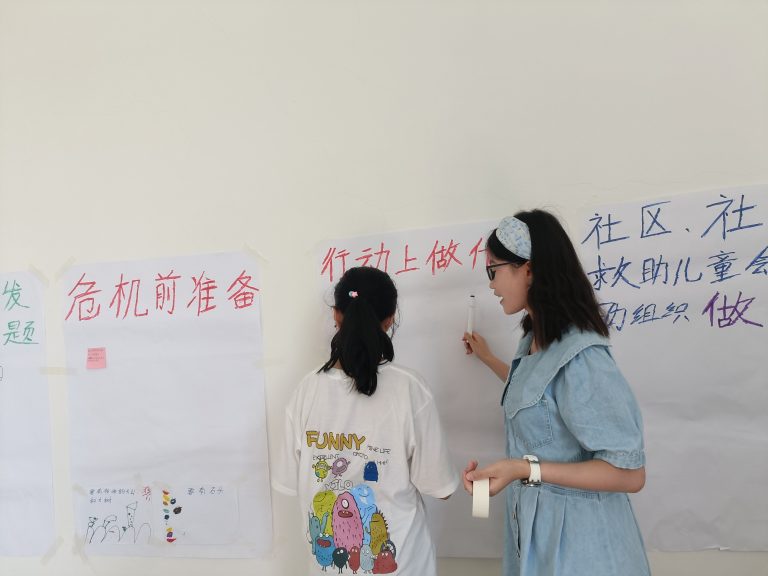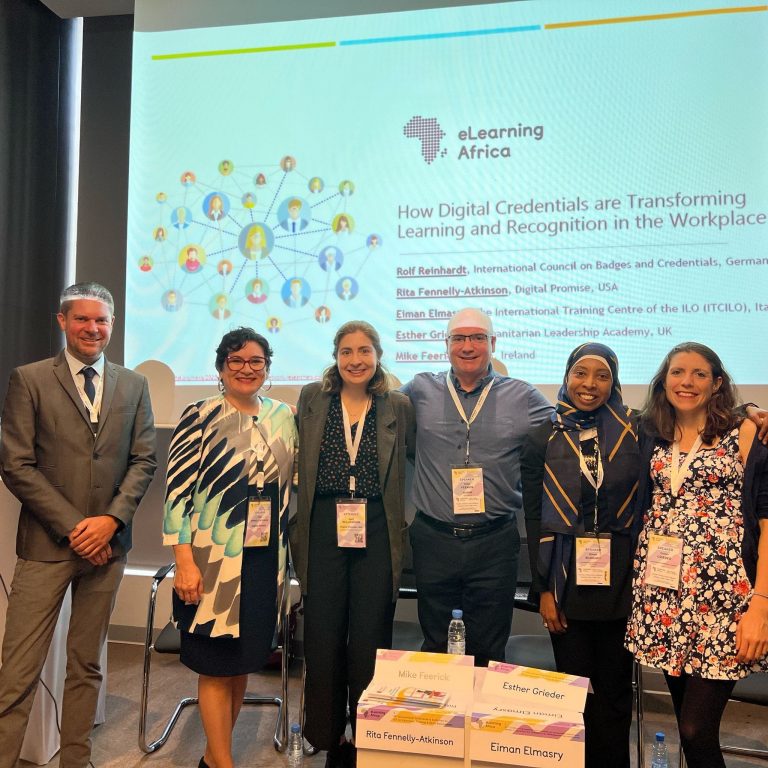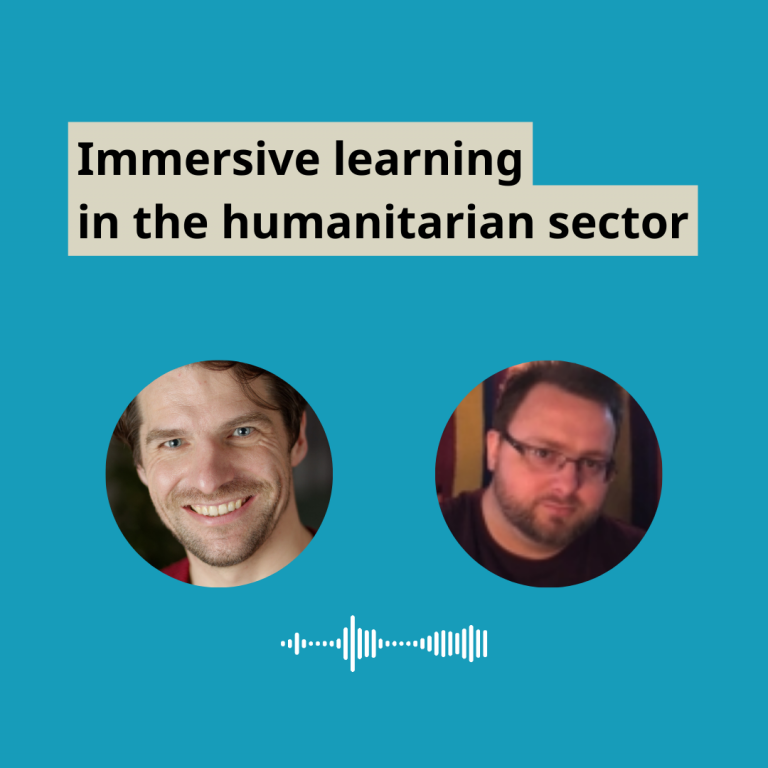By Pawel Mania, Deputy Director for Transformational Response, and Kamila Wujec, Regional Lead for the HLA Eastern Europe Regional Centre
As we approach one year of armed conflict in Ukraine, the same questions keep echoing: How many more months? How much more aid? The war situation and the information reaching the public are constantly evolving. In this chaotic state of rapid changes and ever more complexity, there are two things that have remained constant: Ukrainian resilience and European solidarity.
As those focused on supporting the Ukraine response at the Humanitarian Leadership Academy, or HLA, we know that the response to the conflict in Ukraine receives a level of aid and a profile that is unmatched elsewhere, from the famine in East Africa to conflict in West Africa and the Sahel. However, is there a threshold for the resilience and solidarity we continue to count on when it comes to Ukraine?
Civil society in Ukraine as well as in neighboring countries has overwhelmingly carried the burden of the humanitarian response since the beginning of the war, witnessing about 7.1 million internally displaced persons in Ukraine and 8 million individual refugees from Ukraine recorded across Europe fleeing conflict.
This is clear to our colleagues at the HLA Eastern Europe regional center as well as to other international actors. It has been fully recognized by the Disasters Emergency Committee, or DEC, where Save the Children UK and the HLA are partner organizations that have been delivering an extraordinary response — which has predominantly been implemented through and with local partners.
The need for strengthened local-international collaboration
Findings from a recent DEC Ukraine Humanitarian Appeal Report — in English and Ukrainian — show what has worked well so far, but also reveal how this local-international collaboration can be strengthened to better address the growing needs.
Is this a model for success? Potentially, yes, in many ways. But is it currently a fully sustainable response that is being replicated across the region? This does not appear to be the case, as not all local organizations have been as fortunate as some of those supported by DEC partners. These local organizations made it very clear in two recently published strongly worded open letters, addressed to the humanitarian system from NGOs in Ukraine and Poland. As stated in one of them:
“You bring extraordinary, much-needed knowledge and we are more than willing to learn from you. At the same time be open to learn from us. Only in a true partnership, using the local resources and the knowledge of local NGOs, combining it with international experience and capacity, we all are able to bring about quality change.”
This message is not surprising — according to a report by Humanitarian Outcomes, “national Ukrainian NGOs received a scant 0.003%” of the millions of dollars raised for support by the international humanitarian sector. HLA, together with Save the Children UK, have heard their voices loud and clear and now we are working tirelessly to ensure national Ukrainian NGOs remain at the center of the aid debate on Ukraine. Our previous experience with other global crises tells us that the only sustainable response is one led by local actors.
When setting up our plans for this response, we were also aware of both the tremendous responsibility and the opportunity we have in our hands: the incredibly strong civil society, generous funding, and reassuring political will. Our programming has focused on supporting local organizations and communities, which nearly a year after, remain at the forefront of the response, and are unsurprisingly exhausted and bruised.
Addressing the issue
The DEC partners, including HLA/SCUK, will be addressing issues raised in the report, by setting up a pooled funding initiative. Learning from the experience of HLA, which is currently rolling out a capacity strengthening fund in Ukraine, local organizations can decide themselves what they want to invest in to continue saving lives and livelihoods but also to repivot their work for when the war ends and reconstruction starts.
To enable this level of support we have set up a regional center in Poland, building on our global delivery model. The newly created regional center allows us to collaborate with other local and international actors within already existing networks or drive new initiatives where there is a gap and need identified by local actors.
In Poland, through the Capacity Strengthening Task Force and with the support of the NGO Forum, we have created the Response Learning Hub, which will soon be fully launched in the region. The hub contains 50 digital courses translated into Ukrainian, Polish, and Romanian. These are humanitarian essentials that have been tested and quality assured for those new to the humanitarian response or who need to improve their knowledge and skills.
This digital learning is complementary to the much wider offer we are delivering through our regional center in Eastern Europe. Local and international leadership must work hand-in-hand in order to successfully deliver localized action to support those in need. By doing so, we are building a bridge toward new models of working based on the huge solidarity we have witnessed.
At HLA we believe that by working with the local civil society we can build the most agile response model. Our partners can adapt their delivery to ever-changing needs and to the complex, multi-layered, and overlapping stages of the humanitarian response. To ensure continued success, we have made focusing on learning from results and evidence nonnegotiable.
In order to maximize the impact of our efforts in the Ukraine crisis, as always, we want to understand what works in this context and what local solutions we should replicate in other responses. While we will be providing direct research funding grants, we are also concurrently developing transformative ways of thinking that drive innovation across the sector through our new thinking project called Alameda. This will promote research and strategy from a non-Western perspective.
Feb. 24 is not an anniversary the Ukrainian people would ever wish to celebrate, but it is a critical moment in the evolution of humanitarian aid. The legacy of this moment for Ukraine and the world at large must therefore be one of radical change toward future responses built on genuine self-determination and effective international solidarity.


